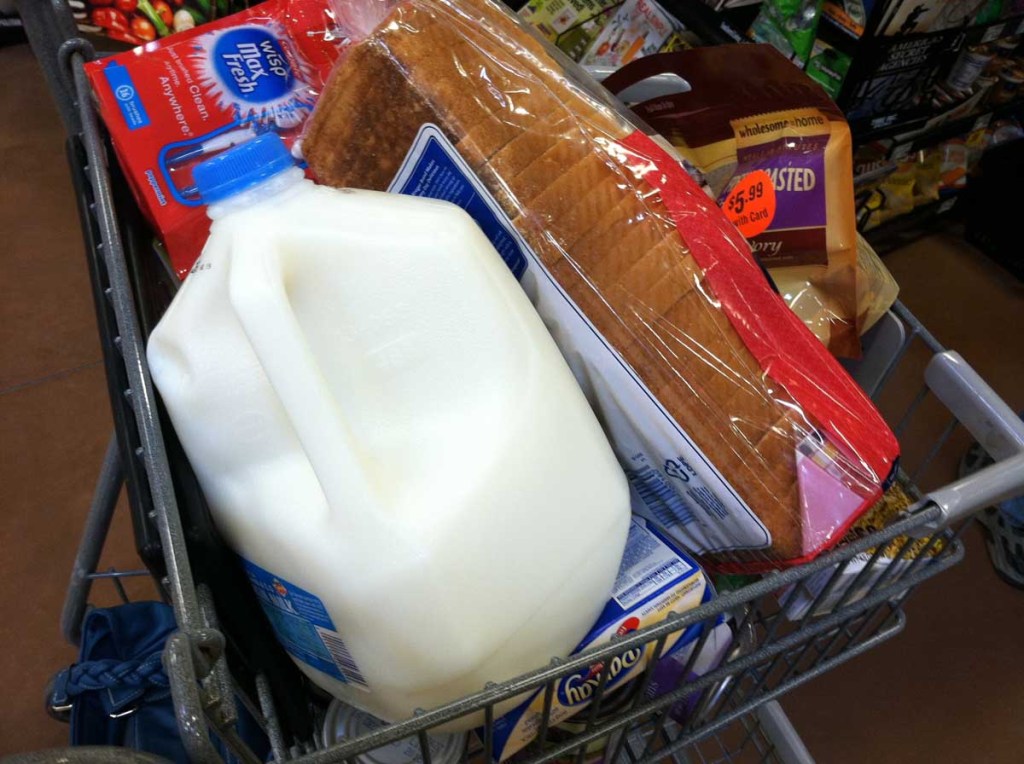UGA Extension reminds Georgians to put more than milk and bread in emergency food supply
Published 10:49 am Friday, August 30, 2019

- When a weather emergency is expected, shoppers rush out and stock up on milk and bread. But what happens if the electricity goes off for days and the milk spoils, or after the loaf of bread runs out? University of Georgia Cooperative Extension experts say having at least a three-day supply of shelf-stable food will give you a little peace of mind when it comes to feeding your family during a storm.
As Hurricane Dorian heads toward the continental U.S., Georgians are reminded of the arrival of a season that isn’t celebrated – hurricane season.
When the word storm is uttered, Georgians typically flock to the grocery stores and stock up on bread, milk and bottled water. Having those staples items on hand is a good idea, but University of Georgia Cooperative Extension offers a broader list of items to have on hand no matter what emergency threatens to arrive.
Having an emergency food supply will ease some of the stress of emergencies and natural disasters, said Extension food safety specialist Elizabeth Andress.
The size of your emergency food supply depends on the size of your family and home storage area. Select foods that are nonperishable and require no refrigeration, little or no cooking, and little or no water. Include ready-to-eat canned meats, fruits and vegetables. Select one-meal or snack-sized containers, as you may not be able to refrigerate leftovers.
Add canned juices, soups and canned or powdered milk. Include bottled water for drinking and extra water for mixing powdered milk and diluting the soups. Supply enough fluids (milk, juice, water, etc.) so each family member has at least one gallon per day.
Andress recommends including staple foods, like sugar, salt and pepper, as well as high-energy foods like peanut butter, jelly, granola bars and trail mix. Specific food items for infants or elderly family members should also be included, as well as comfort foods like cookies, hard candy, sweetened cereals, and instant coffee and tea.
Consumers should make sure to have a hand-operated can opener, scissors and a knife on hand for opening packaged or canned foods. Disposable plates, cups and utensils, as well as candles and matches or batteries for flashlights are also essential items to have on hand.
If an emergency causes a power outage, UGA Extension food safety experts recommend eating perishable items from the refrigerator first, then frozen foods before using emergency food supplies.
Refrigerated foods like meat, poultry, fish, eggs, milk, cheeses, deli items and leftovers should only be eaten if they have not been above 40 degrees Fahrenheit for two hours. Discard refrigerated food if the power is off for more than four hours.
Eat frozen foods only if ice crystals remain, or if the temperature of the freezer has remained at 40 F or below. Cover the freezer with blankets to hold in the cold, but make sure the air vent is not covered.
For more information from UGA Extension and the UGA College of Family and Consumer Sciences on how to compile short- and long-term emergency food supplies, go to https://t.uga.edu/3wB.
For more information on preparing for storms, see UGA Extension’s collection of resources at extension.uga.edu/topic-areas/timely-topics/emergencies.html.





